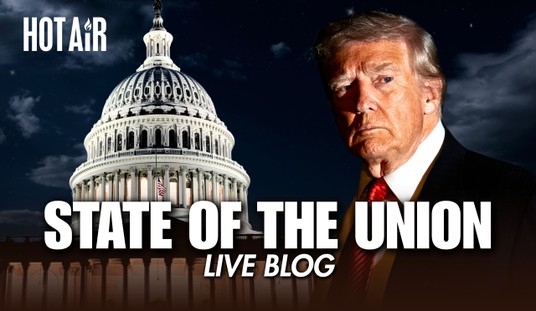The stalemate between Venezuelan dictator Nicolas Maduro and self-declared interim President Juan Guaido is still dragging on, but there are signs that life is returning to its normal horrible state for the people of that nation. The latest change was the reopening of the nation’s border with Colombia this weekend. This prompted a flood of people seeking humanitarian relief streaming over one of the more popular crossing points. For his part, Maduro continues to release public statements acting as if everything is just business as usual. (NPR)
Thousands of people crossed over, seeking food, medicine and basic supplies. For months, Venezuelans have been dealing with power outages, hyperinflation and increased violence due to the deepening political and economic crises in the country.
In a tweet announcing the move, Venezuela’s authoritarian president Nicolás Maduro ordered the reopening of the border with Colombia on Friday and said in Spanish, “We are a people of peace who firmly defend our independence and self-determination.”
The border with Colombia was closed earlier this year in an attempt by Maduro’s government to block opposition and humanitarian groups from delivering foreign aid to Venezuelans in need. Venezuela’s borders with Brazil and the island of Aruba were also closed.
This move seems to be part of Maduro’s ongoing strategy. He doesn’t have a solution to the collapse of his nation’s economy (which he created himself) and he’s nervous about the amount of international attention he’s drawn. With so many countries recognizing Guaido as the president and issuing statements of public support, the dictator is clearly trying to wait out the storm and pretend that the situation has returned to normal. Reopening the Colombian border appears to be part of that normalization process.
One thing that made the border opening notable was the arrival of Angelina Jolie in Colombia. She maintains a position as an ambassador for the United Nations High Commission for Refugees (UNHCR). She greeted refugees at another border crossing before meeting with Colombian President Ivan Duque. As with most of her ambassadorial travels, Jolie was focused on the children, thousands of whom have fled Venezuela and are now living effectively stateless lives in Colombia. She also stressed the need for additional UNHCR funding.
Watching all of this unfolding before our eyes is a rather bizarre experience. Most of the world seems to agree that Venezuela’s dictator needs to be removed, but Maduro retains the support of his military, as well as Russia, China, Iran, Turkey, and a few other authoritarian states. Juan Guaido somehow remains a free man, at least for the time being, but he’s no closer to seizing actual power than when he started. The daily protests around the country are still taking place, but participation is reportedly decreasing.
Is this the end of the story? Is Maduro’s strategy of whistling past the graveyard and just waiting out the storm actually working? That would be a sorry end to this chapter of the nation’s history, leaving an essentially failed state rotting under the grip of a socialist tyrant. But barring some sort of direct military invasion (which could create an entirely new disaster), what else is to be done?









Join the conversation as a VIP Member